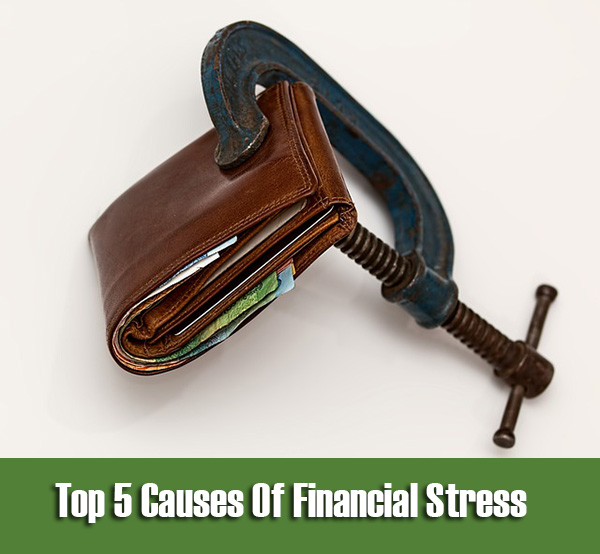Financial issues may lead to stress and can significantly impact your mental health. These problems may cause you to struggle with paying your monthly bills. Financial stress may occur in various situations and under different circumstances. Different people experience varying financial stress conditions. Financial stress may lead to delayed healthcare, unhealthy coping behaviors, and poor physical health. This article outlines the top five causes of financial stress.
Long-term unemployment or low income
Unemployment significantly impacts mental health. This could be due to reduced self-esteem and stress arising from the stigma linked to unemployment. Mental health may also be affected by financial hardships, reduced future income potential, and insecurity, causing stress which damages overall health. Catering to your basic needs and those of your loved ones becomes challenging without employment. Low income is another cause of financial stress. You’ll struggle to make ends meet without sufficient income, which can be pretty depressing.
Luckily, you can take advantage of your government’s benefits for people experiencing difficulties covering essential expenses like food, rent, and heating. For instance, the Family benefits in Saskatchewan program comes in handy for families facing financial hardships due to unemployment or low income. Find the financial benefits you qualify for and apply them to ease your financial stress.
Debt
Debt affects people of different ages, including millennials with college loan debts or seniors staring at retirement and life-long care. Depending on your age, responsibilities, and needs, you may face obligations due to the high cost of living, great recession financial effects, mortgage payments, credit card balances, car loans, supporting loved ones, personal loans, and more. When debt becomes overwhelming, it can cause depression and stress, risking your emotional and physical security.
The collection calls and messages may also leave you depressed. People faced with debt may start using alcohol and drugs to cope with anxiety. Acknowledging your debt, avoiding unnecessary expenditures, prioritizing your obligations, creating an action plan, and acting on it can help you get out of debt.
Financial emergencies
Financial emergencies are unexpected life events that can risk your financial security. A financial emergency can be something that directly impacts your income or directly raises your expenses. Without a contingency fund, these emergencies can be distressing and may even cause you to get into debt. Medical emergencies, the death of a loved one, disasters, and car or home maintenance and repairs are some financial emergencies you might face. You can prepare for such situations by building an emergency fund, taking up insurance covers to cater to the unforeseen obligations that an emergency fund can’t, and looking for additional income sources.
High cost of living
Cost of living refers to how much you need to cater to essential expenses, including food, housing, healthcare, and taxes. Your cost of living is linked to your income. If the cost of living rises and your income doesn’t increase, affording your lifestyle may become challenging. Consider adjusting your lifestyle according to your earnings to reduce financial stress.
Poor money management
Bad money management habits can easily cause financial stress. Expenses such as credit card bills can increase, putting you in financial struggles. Consider budgeting your money wisely before spending and look for ways to minimize costs.
Endnote
With the rising cost of living and high unemployment rates, you might find yourself stuck in a mental health and financial stress cycle. Familiarize yourself with the causes of financial stress and what you can do to avoid them.







Speak Your Mind